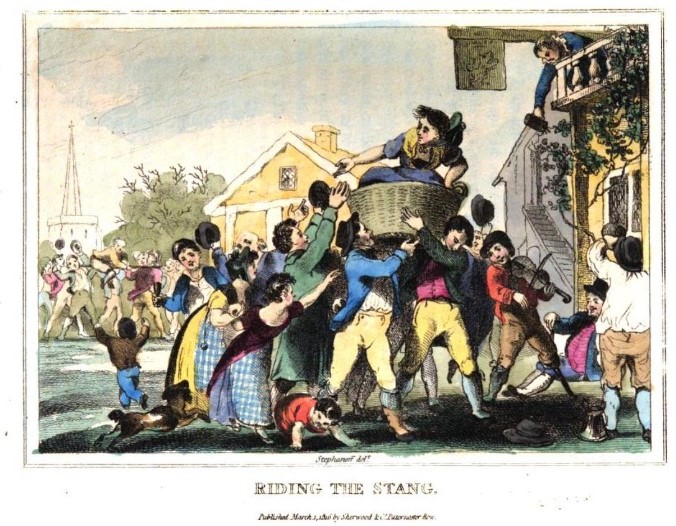Popular pastimes, being a selection of picturesque representations of the customs & amusements of Great Britain, in ancient and modern times (1816).

This European and North American custom can also be called charivari or skimmington.
Popular pastimes, being a selection of picturesque representations of the customs & amusements of Great Britain, in ancient and modern times (1816).

This European and North American custom can also be called charivari or skimmington.
Is the the same as being “run out of town on a rail” where a man us carried out on a log, a railing, or other long piece of wood?
I think it is definitely correlated to being run out on a rail.
I thought charivari was gathering out side the person’s house at night and making a great noise.